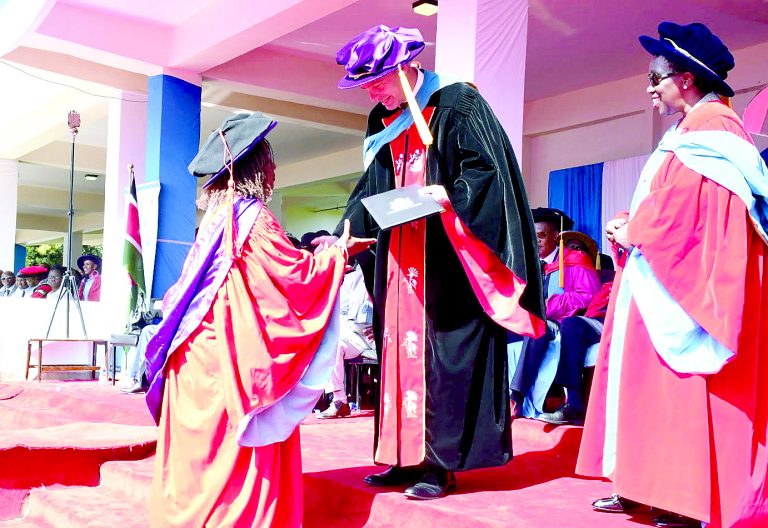Grounded scholars: Why Kenya needs more PhDs

Somewhere on a Kenyan campus, a master’s student is whispering to their thesis like it’s an ex who ghosted them: “Please, just let me go.”
Another is stuck on Chapter Four for the third year running, not because they’re slow, but because their assigned supervisor vanished like HELB money in February.
Postgraduate life in Kenya has become a tragic comedy, where students are the main actors in a play with no final scene, no graduation, no closure, just endless rewrites and unanswered emails.
Postgraduate students are not graduating, not because they failed, not because they gave up, but because there are simply not enough PhD holders to supervise them.
Comrades, once celebrated for choosing the noble path of academia, are rotting in institutions built to delay them.
These are not dropouts. They are not lazy. They are not unserious.
They are the ones who chose to go deeper, to pursue research, innovation, and national development at its most intellectual level.
Yet, they are paying the highest price for a system that keeps forgetting them.
Imagine spending years collecting data, sacrificing income, postponing family plans, all in the hope of becoming a knowledge creator, only to be told, “We’re still looking for a supervisor.”
Or worse, you get one, but they vanish for months, are overloaded with too many students, or barely engage with your work. Your graduation? Postponed. Your scholarship? Wasted. Your momentum? Gone.
This is the reality in many of our public universities. Thousands of postgraduate students are stuck in academic limbo, caught between a shortage of qualified PhD supervisors and a system that has normalised delay as if it were a rite of passage.
The result? Burnout. Frustration. Depression. And in the most painful cases, dropout.
We cannot continue to pretend that this is normal.
In a country where we preach about knowledge economies, digital transformation, and African solutions for African problems, it is a cruel irony that our own future scholars are grounded, not for lack of ability, but for lack of support.
What is the cost of this stagnation? It is not just delayed graduation dates. It is an innovation lost. It is policy insights buried in incomplete theses.
It is research papers that will never be published. It is technology that will never be built. It is communities that will never benefit from well-thought-out social research.
It is Kenya falling behind while our most brilliant minds idle in hostels, libraries, and cafeterias.
And it is not just a numbers game. Even when a postgraduate student finally finds a supervisor, the quality of mentorship is often wanting. Many supervisors are overworked, underpaid, and unsupported themselves.
They juggle heavy teaching loads, administrative duties, and personal struggles.
The emotional labour of guiding ten or more students across different research areas becomes overwhelming, and so, many resort to ghosting, rubber-stamping, or robotic feedback that does little to move the student forward.
This is not how intellectual growth happens.
And while this dysfunction drags on, the country continues to glorify foreign scholars, import consultants, and celebrate tech founders who build products in Silicon Valley with knowledge we could have nurtured right here, if only we cared enough to fund our own thinkers.
The writer is a digital marketer, brand strategist, and founder of the Pride of Kenya Awards, an initiative focused on youth empowerment and innovation















